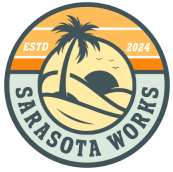Introduction: Defining Digital Literacy and Its Significance in the Modern Job Market
In an era where technology touches almost every aspect of our lives, digital literacy has become a critical skill set. But what exactly is digital literacy? Simply put, it’s the ability to use digital tools and technologies effectively. This includes everything from basic computer skills to understanding complex software applications, and from navigating social media to leveraging online collaboration platforms.
In the modern job market, digital literacy has transformed from a nice-to-have to a must-have. Employers increasingly seek candidates who can demonstrate strong digital skills, as these competencies are essential for productivity, communication, and innovation. For job seekers and career changers, honing digital literacy is not just about keeping up with the times; it’s about gaining a competitive edge in a crowded job market.
The Evolution of Job Search: How Digital Literacy Has Transformed the Way People Look for Employment
Once upon a time, job searching meant perusing newspaper ads and mailing out physical resumes. Today, the landscape is dramatically different, driven by digital advancements. Online job boards, professional networking sites, and company career pages have become the go-to resources for job seekers.
Digital literacy allows job seekers to navigate these platforms efficiently, apply for positions quickly, and manage multiple applications without losing track. Moreover, the rise of remote work and virtual interviews means that being comfortable with video conferencing tools and digital communication platforms is more important than ever. In essence, digital literacy equips job seekers with the skills needed to find and secure employment in a digital-first world.
Skills Gap Analysis: Identifying the Digital Skills Most in Demand and How Job Seekers Can Bridge the Gap
To succeed in the modern job market, it’s crucial to understand which digital skills are most in demand. Here are some key areas where digital literacy is particularly valuable:
- Basic IT Skills: Proficiency in using computers, smartphones, and other digital devices.
- Office Software: Knowledge of tools such as Microsoft Office Suite (Word, Excel, PowerPoint) and their equivalents (Google Workspace).
- Email and Online Communication: Effective use of email, chat applications, and video conferencing platforms like Zoom and Microsoft Teams.
- Social Media Savvy: Understanding how to use social media platforms for personal branding and networking.
- Data Literacy: Basic understanding of data management, analysis, and visualization tools like Excel or Tableau.
For job seekers looking to bridge the skills gap, online courses and certifications from platforms such as Coursera, LinkedIn Learning, and Khan Academy can be invaluable. These resources offer accessible and affordable training to help you develop the digital skills that employers value most.
Tools and Resources: Highlighting Essential Digital Tools and Resources for Job Seekers to Improve Their Digital Literacy and Job Search Efficiency
Improving digital literacy and job search efficiency begins with leveraging the right tools and resources. Here are some essentials:
- LinkedIn: The premier professional networking site for building connections, showcasing skills, and finding job opportunities.
- Indeed: A comprehensive job search engine that aggregates listings from various sources and allows users to apply directly through the platform.
- Glassdoor: Offers company reviews, salary insights, and job listings to help job seekers make informed decisions.
- Canva: A user-friendly design tool for creating professional resumes, cover letters, and personal branding materials.
- Trello: An excellent project management tool to organize your job search tasks, applications, and follow-ups.
- Grammarly: A digital writing assistant that ensures your applications and communications are error-free and professional.
Using these tools effectively can streamline your job search and enhance your digital literacy simultaneously.
Success Stories: Real-Life Examples of Individuals Who Enhanced Their Job Search Success Through Improved Digital Literacy
The power of digital literacy is best illustrated through real-life success stories. Take the example of Sarah, a marketing professional who found herself out of a job during the pandemic. Determined to stay relevant, she enrolled in several online courses to enhance her digital marketing skills, including SEO and social media management. By the time she completed these courses, Sarah had not only improved her digital literacy but also created an impressive online portfolio. She soon landed a job at a top digital marketing firm, attributing her success to her newfound digital skills.
Another inspiring story is that of John, a mid-career professional who decided to pivot into the tech industry. Starting with basic coding classes on Codecademy, John gradually built up his skills and confidence. He documented his learning journey on LinkedIn, garnering attention from recruiters. His commitment to improving his digital literacy paid off when he received multiple job offers from reputable tech companies.
These stories highlight that investing in digital literacy can lead to significant career advancements and job search success.
Strategies for Improvement: Actionable Tips for Job Seekers to Enhance Their Digital Literacy and Stand Out in the Job Market
Improving your digital literacy doesn’t happen overnight, but with consistent effort, you can make significant strides. Here are some actionable tips:
- Identify Your Weaknesses: Start by conducting a self-assessment to identify areas where your digital skills might be lacking.
- Take Online Courses: As mentioned earlier, platforms like Coursera, Udacity, and LinkedIn Learning offer courses tailored to various digital skills.
- Practice Regularly: Apply what you learn by taking on small projects or volunteering for digital tasks in your current role or community.
- Join Online Communities: Engage with online forums and social media groups related to your industry. These communities often share valuable resources and offer networking opportunities.
- Update Your Digital Presence: Ensure your LinkedIn profile and online portfolio reflect your newly acquired skills. Regularly update them to showcase your progress.
- Seek Feedback: Don’t be afraid to ask for feedback from peers or mentors on how you can improve your digital skills.
- Stay Current: Technology evolves rapidly. Make it a habit to read industry blogs, attend webinars, and follow thought leaders to stay updated on the latest trends and tools.
Conclusion: The Importance of Digital Literacy in Job Searching and Encouraging Readers to Take Steps
In today’s fast-paced, technology-driven job market, digital literacy is no longer optional—it’s essential. Whether you’re a job seeker looking to enter the workforce or a career changer aiming to pivot into a new field, improving your digital literacy can significantly enhance your job search success.
By understanding the evolving landscape of job searching, identifying the digital skills most in demand, utilizing essential tools and resources, and learning from success stories, you can take actionable steps toward becoming more digitally literate.
Remember, the journey to digital literacy is a continuous one. Stay curious, stay proactive, and most importantly, stay committed to lifelong learning. Your future career success depends on it.
Ready to take the first step? Start by exploring the myriad of online courses available and begin your journey to digital literacy today.


